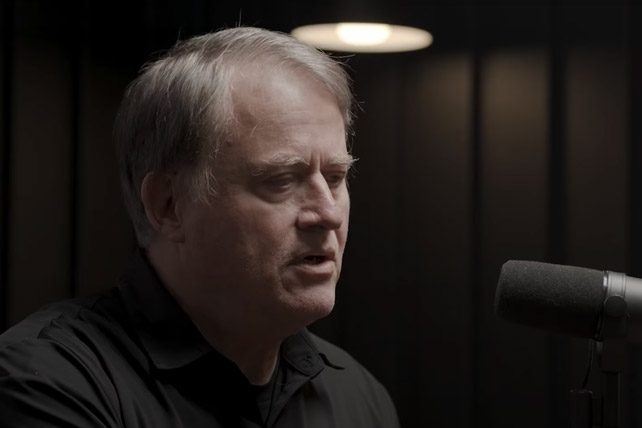Tomorrow, March 28, marks two years since Nanci entered the presence of Jesus, after a four-year battle with cancer. I’ve been reflecting on what God has been teaching me since her death and its first-year anniversary.
Google “Grief recovery,” and there are over one million hits. It’s an interesting term. You recover from a cold, a virus, or a broken arm. I don’t think you really recover from the huge loss—the amputation, so to speak—of someone central to your life.
There is something in me that does not want to ever “get over” my loss of Nanci. Yet I also recognize that God has been doing a work of grace in my life over the last two years, and bringing me comfort that allows me to go forward without her. Greatly helped by the anticipation of being with her again in the presence of Jesus! (I really like the photo above, as it captures Nanci’s delight. And as I think about her joy, it helps me tremendously through times of grief. The photo of us together on that ride is an example of our shared delight, that so warms my heart as much now as it ever has.)
God has also graciously allowed me to encourage and be encouraged by other grieving people, many of whom have contacted us through our website or on social media. One of the things I’ve been thinking about is what it looks like to grieve in light of the certain blood-bought hope of the gospel. (Which is very different than the “hope” that is just wishful thinking.)
After I spoke at Shepherd’s House Church in Phoenix, Arizona, where Costi Hinn pastors, I recorded some videos with Costi, to be featured on For the Gospel. He asked,“What would you say to a Christian who is mourning the loss of a loved one?”
As I mention in the video, I’ve heard it said, “There’s no wrong way to grieve.” I disagree. (Certainly, there are different ways and lengths of time to grieve. We should not rebuke or lay guilt on the brokenhearted!)
The Bible says this about grief: “And now, dear brothers and sisters, we want you to know what will happen to the believers who have died so you will not grieve like people who have no hope. For since we believe that Jesus died and was raised to life again, we also believe that when Jesus returns, God will bring back with him the believers who have died” (1 Thessalonians 4:13–14 NLT, emphasis added).
Doesn’t this mean grieving as if we have no hope is the wrong way to grieve? And that grieving while embracing Christ’s rock-solid promise of His second coming and our resurrection—and that of all who love Him—is the right way to grieve? (See Biblical Hope Is a Solid Certainty.)
Ponder this portion of Romans 8, which brings perspective to grieving:
For we know that the whole creation has been groaning together in the pains of childbirth until now. And not only the creation, but we ourselves, who have the firstfruits of the Spirit, groan inwardly as we wait eagerly for adoption as sons, the redemption of our bodies. For in this hope we were saved. Now hope that is seen is not hope. For who hopes for what he sees? But if we hope for what we do not see, we wait for it with patience. (Romans 8:22-25)
Healthy grief recognizes the reality of the loss, but it has eternal perspective. It also recognizes, slowly but surely, that this present life goes on, and even gets better over time. “For everything there is a season. . . . A time to cry and a time to laugh. . . A time to grieve and a time to dance” (Ecclesiastes 3:1,4 NLT). “The hope of the righteous brings joy” (Proverbs 10:28).
God took Nanci out of this world, but He has not chosen to take me yet. He has sovereign reasons for this. Since her death, I have been grieving, but I’ve also been writing, traveling, bike riding, and playing tennis with high school kids that I coach, including my grandsons. I gather with fellow believers, at church and elsewhere, meet with a small group of men, and weekly have dinner with old friends. Along the way grief comes and goes. I don’t push grief off the couch, but neither do I allow it to claim the couch and push me onto the floor. (Early on grief will sometimes do that, but with healthy grieving over time that will become the exception not the rule.)

